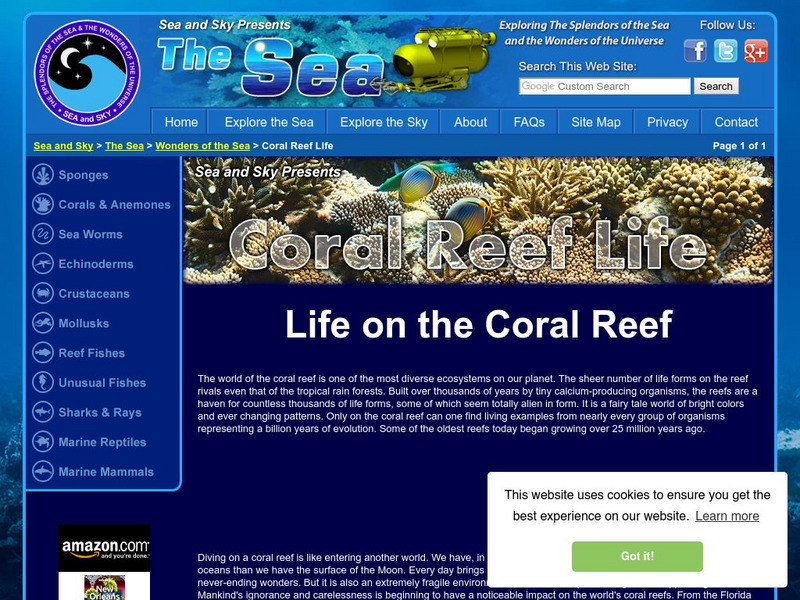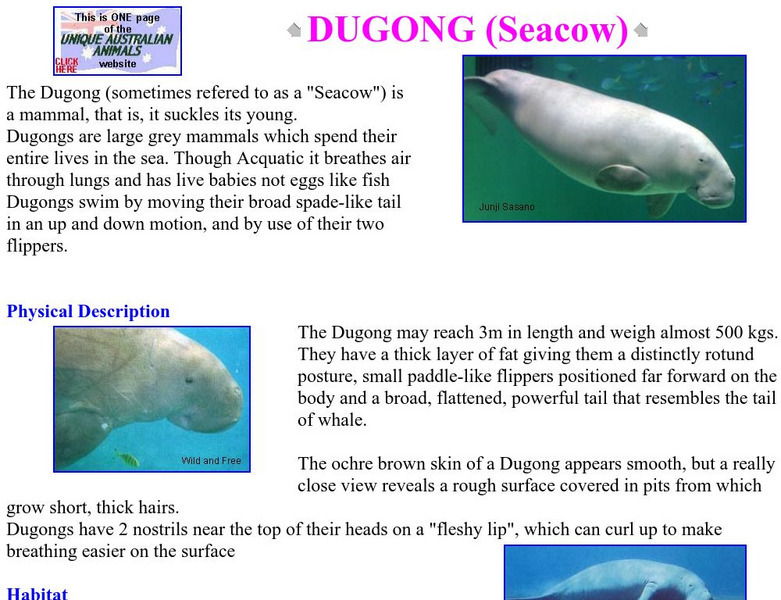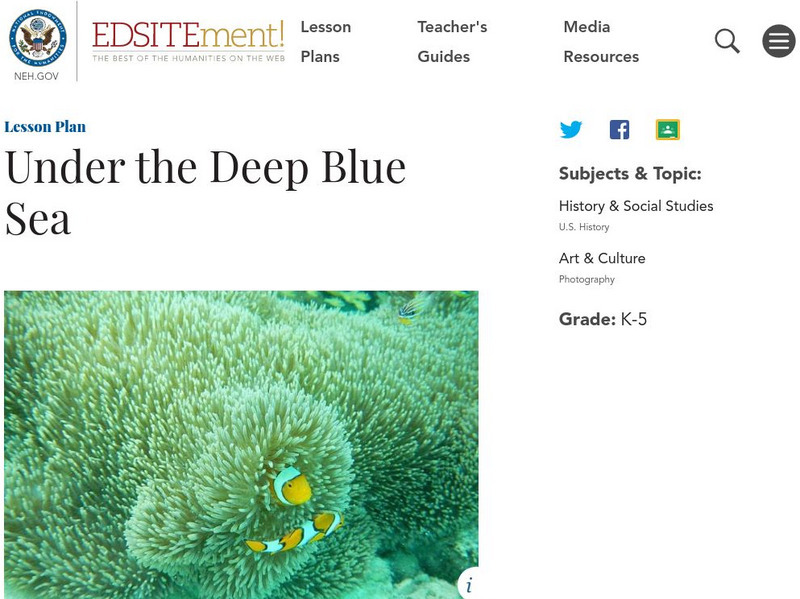Other
International Marine Mammal Project: Dolphin and Whale Project
A site authored by the trainer from the original "Flipper" TV show. This site takes the approach that the exploitative use of marine mammals should be stopped.
National Geographic Kids
National Geographic Kids: Animals: Orcas
Orcas, more commonly known as killer whales, are featured on this multimedia site. These video clips, audio clips, photographs and facts will be very beneficial to students doing research projects.
Natural History Museum
Natural History Museum: Mammals
This is the opening page for an online exhibit on mammals. The topics covered in this exhibit include whales, dolphins, bats, humans, chimps, and more.
Society for Science and the Public
Science News for Students: Sleepless at Sea
Can you go for a month without sleeping? Most mammals can't, but scientists have found some marine mammals that do. Find out why some orcas and dolphins don't sleep for weeks at a time.
BBC
Bbc: Science and Nature: Animals on the Edge Cetaceans
Get information about the risks faced by the Cetacean mammal group. Additional information is also available on the specific species at risk and actions you can take to help.
Other
American Cetacean Society: Monterey Bay Chapter
This resource provides basic information about educational, conservational and scientific efforts in the Monterey Bay area.
NOAA
Noaa: Ocean Facts on Marine Mammals
The National Oceanic & Atmospheric Administration sponsors this introductory article and related links that tell why marine mammals are valued by the public for their great aesthetic, recreational and economic significance.
Other
Neo K12 Education: Marine Animals
Learn about marine animals with fun, interactive, educational videos, games, quizzes, and activities.
TeachEngineering
Teach Engineering: All Caught Up: Bycatching and Design
Bycatch, the unintended capture of animals in commercial fishing gear, is one of the hottest topics in marine conservation today. About 25% of the entire global catch is bycatch. This surprisingly high level of bycatch is responsible for...
Language Guide
Language Guide: Los Animales Del Mar (Spanish)
This resource provides colorful pictures of sea animals interact with audio and the written vocabulary word as you move your mouse over the picture. This vocabulary would compliment a science unit on marine life.
Defenders of Wildlife
Defenders of Wildlife: Fact Sheets
Here you can find fact sheets on over 50 species of animals. Find an animal by where it lives in the world, and learn all about it.
Other
Ocean Oasis: Field Guide
Ocean Oasis is a giant-screen film that depicts Mexico's Sea of Cortes and the Baja California desert. This companion site features much of the information the film has, such as beautiful images of animals, water, and land that have...
Quia
Quia: Animal Facts Scavenger Hunt
At this website you are given ten questions to answer and links to three websites where you can find those answers.
MarineBio Conservation Society
Marine Bio: Tucuxis
Illustrated reference guide features useful information on tucuxis with facts on physical characteristics, behavior, range, habitat, diet, and conservation status.
Other
Sea Sky: Reef Life
The coral reef, its composition and inhabitants are explored here in detail. With additional information about the life that inhabits a coral reef.
Other
Sdnhm: Shark Friends Home Page
Educational site that is dedicated to educating people about sharks. Contains tons of learning exercises and activities about sharks, conservation and other sea creatures!
Unique Australian Animals
Unique Australian Animals: Dugong
Unique Australian Animals introduces you to the dugong or sea cow, an mammal that is similar to the manatees found in Florida.
National Endowment for the Humanities
Neh: Edsit Ement: Under the Deep Blue Sea (Lesson Plan)
Using language and resource skills to explore the ocean and the life within is what this lesson plan from EDSITEment is all about. The lesson is multi-level and resources and academic content standards are available.















